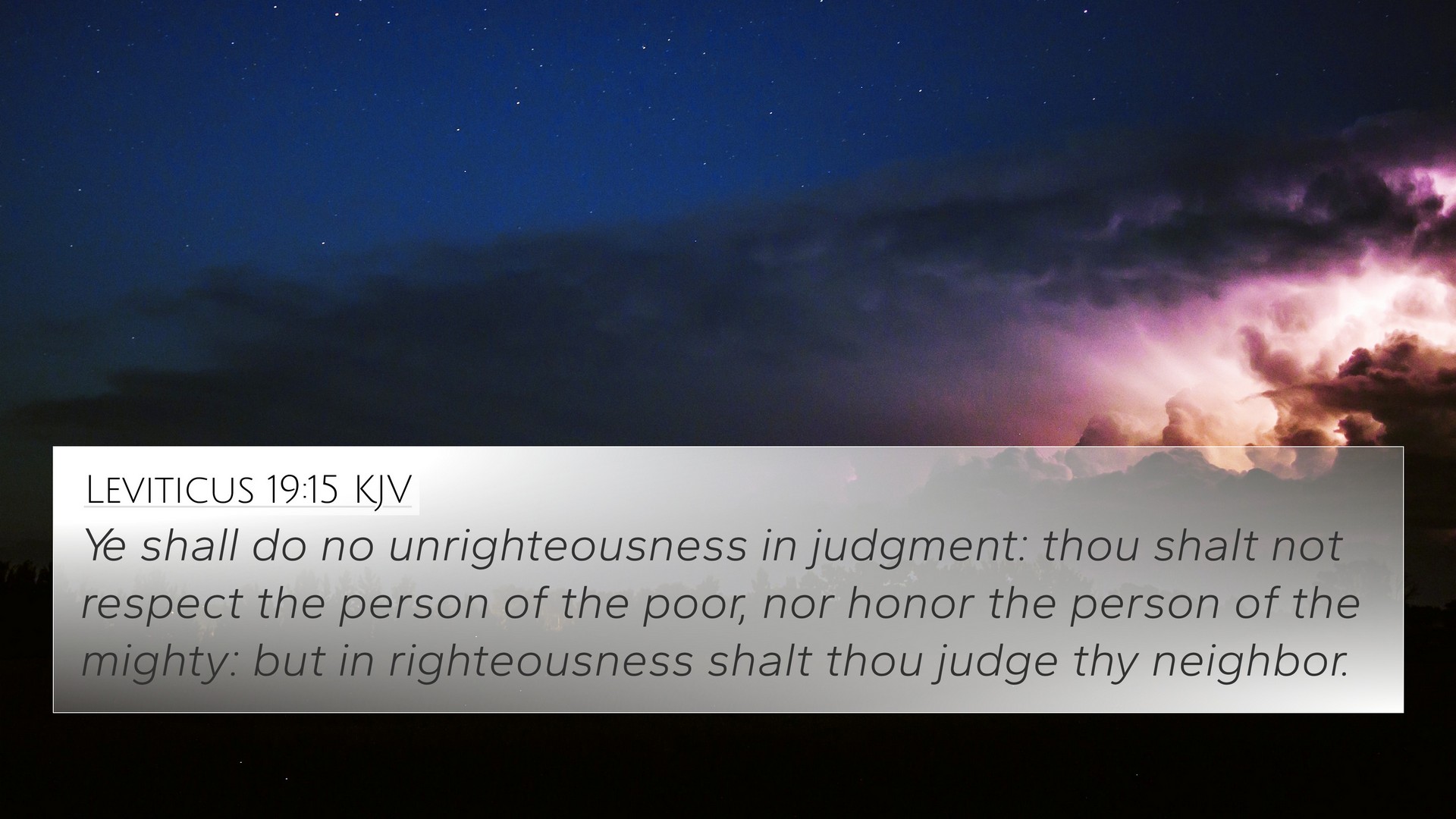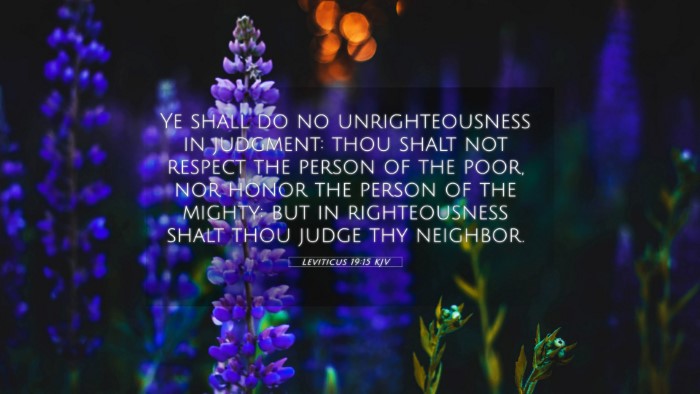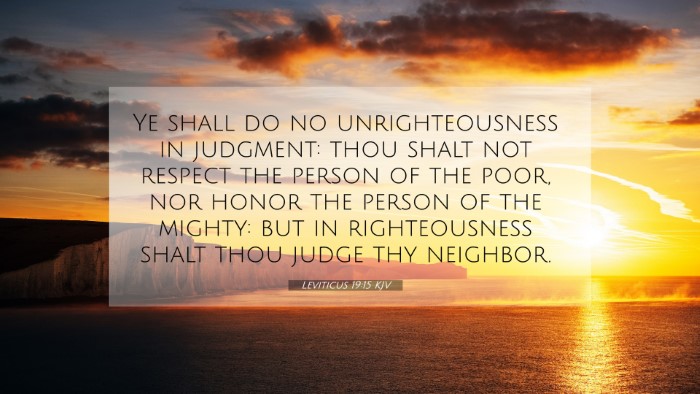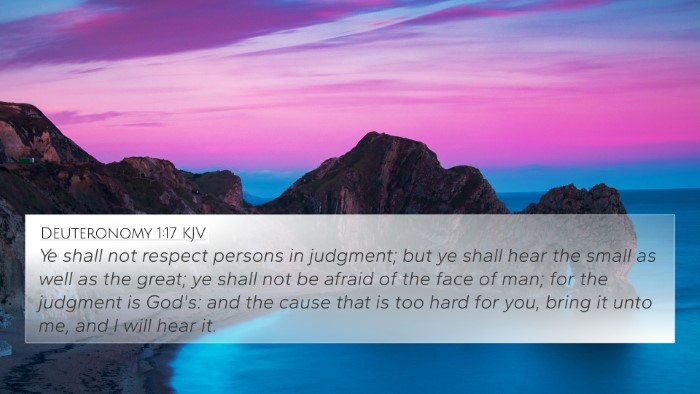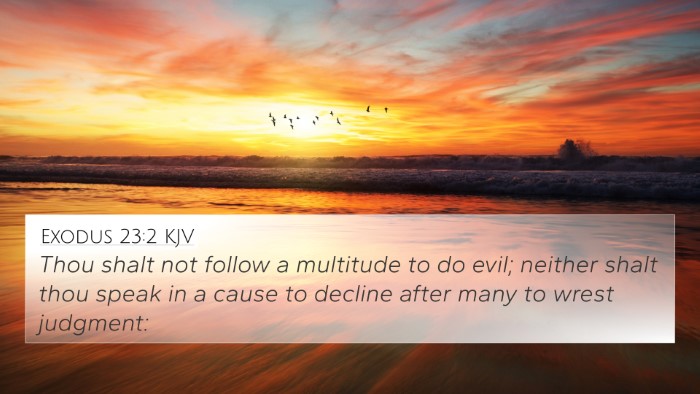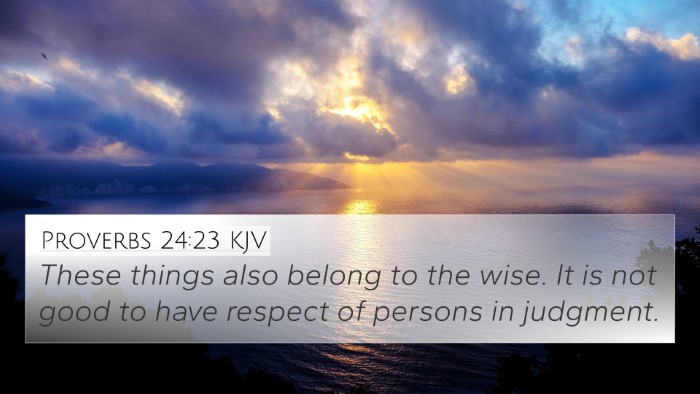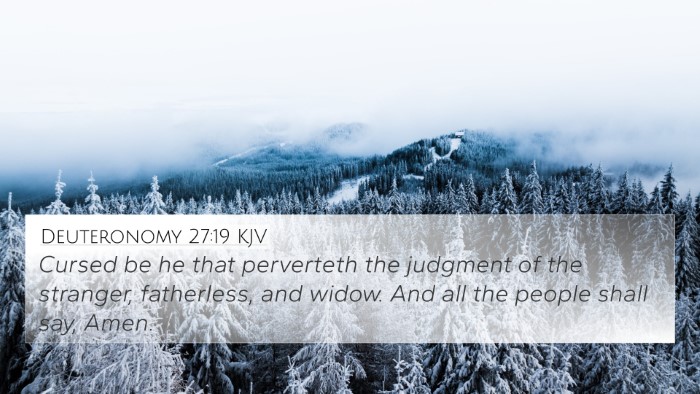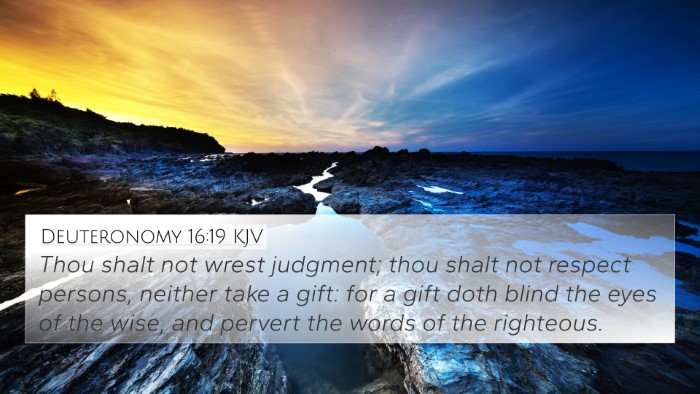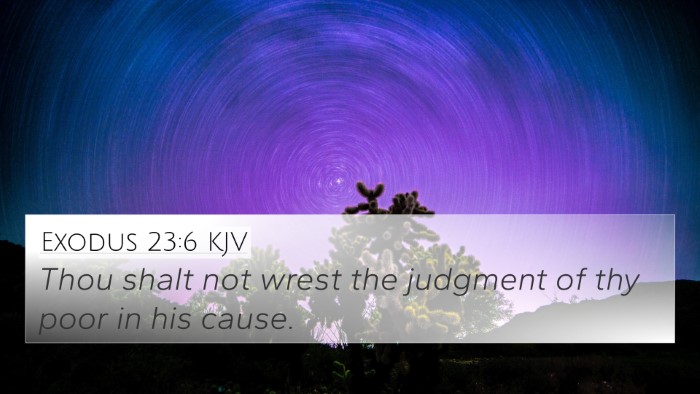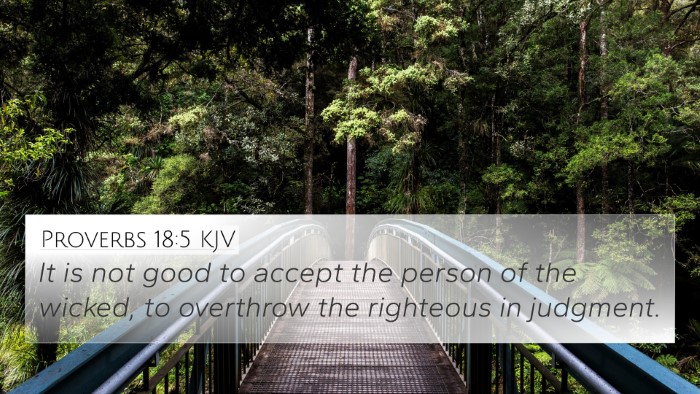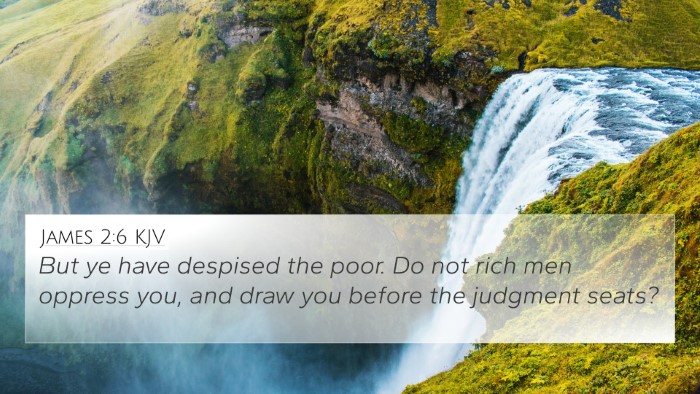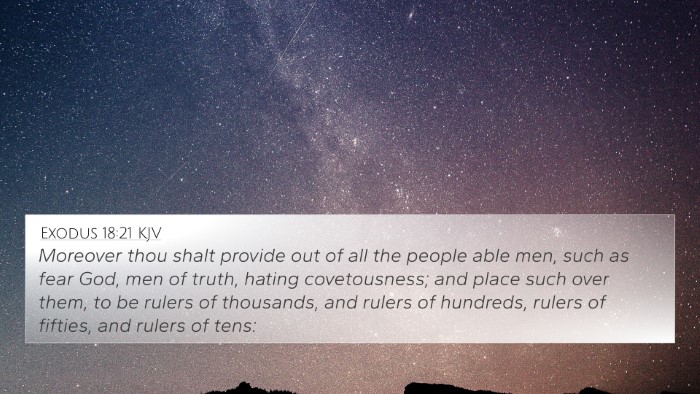Understanding Leviticus 19:15
Leviticus 19:15 states:
"You shall do no injustice in judgment. You shall not be partial to the poor, nor honor the person of the mighty. In righteousness you shall judge your neighbor."
This verse emphasizes the importance of impartiality and righteousness in judgment, principles that resonate throughout the Scriptures. Below, we will delve into the insights provided by renowned public domain commentaries, including those by Matthew Henry, Albert Barnes, and Adam Clarke.
Commentary Insights
Matthew Henry's Commentary
Matthew Henry highlights the call to justice, noting that God's people are to judge fairly without favoritism. He emphasizes that whether it is a case involving a poor person or one of high status, the judgment must remain just and equal. This reflects God’s character and the nature of His kingdom, where all are valued equally.
Albert Barnes' Notes
Albert Barnes provides further context by connecting this command to the overarching theme of holiness in the book of Leviticus. He suggests that social justice is a hallmark of Godly living and that maintaining impartiality serves as a testament to one's faith. Barnes also reflects on the need for integrity in public officials and leaders, stressing that true judgment arises from a heart aligned with God’s standards.
Adam Clarke's Commentary
Adam Clarke delves into the implications of this commandment for societal conduct. He points out that it advocates for equality before the law and reinforces the moral obligation to act righteously, regardless of personal biases or societal pressures. Clarke also notes that this principle is echoed in the New Testament, further connecting the Old Testament scripture with Christ's teachings.
Thematic Connections
This verse serves as an anchor point for numerous connections between different Bible verses emphasizing fairness and justice:
- Deuteronomy 1:17: "You shall not be partial in judgment; you shall hear the small and the great alike. You shall not be intimidated by anyone, for the judgment is God's."
- Proverbs 24:23: "These also are sayings of the wise: To show partiality in judging is not good."
- James 2:1-9: The warning against favoritism in the church context, illustrating the importance of impartiality among believers.
- Isaiah 1:17: "Learn to do good; seek justice, correct oppression; bring justice to the fatherless, plead the widow's cause."
- Micah 6:8: "He has told you, O man, what is good; and what does the Lord require of you but to do justice, and to love kindness, and to walk humbly with your God?"
- Luke 16:15: "And he said to them, 'You are those who justify yourselves before men, but God knows your hearts. For what is exalted among men is an abomination in the sight of God.'
- Romans 2:6-11: Discusses God’s impartiality in judgment, reinforcing the idea that all will be judged equitably.
Inter-Biblical Dialogues
Exploring Leviticus 19:15 offers profound connections with various scriptures that promote the themes of justice, impartiality, and righteousness. Below are key thematic Bible verse connections:
- Justice pervades through the law in Leviticus and echoes into the teachings of Jesus.
- The call for impartiality in judgment showcases a divine characteristic that both the Old and New Testaments uphold.
- This principle directly correlates with social ethics in both testaments, placing significant responsibility on followers of God.
- Understanding the emphasis on justice fosters deeper insights into God's nature and His expectations for humanity.
Cross-Referencing the Themes of Leviticus 19:15
For those engaging in cross-referencing Bible study, using tools like a Bible concordance or Bible cross-reference guide can greatly enhance understanding. Here are methods to utilize:
- Identifying connections between Old and New Testament: How does the concept of impartiality carry over into the New Testament teachings of Christ?
- Detailed cross-reference between Gospels: Examining how various Gospel writers address justice and fairness in their accounts.
- Cross-referencing Psalms with New Testament teachings: Psalms such as Psalm 89:14 highlight righteousness and justice as central to God's throne.
Practical Applications
Understanding Leviticus 19:15 not only enhances our scriptural knowledge but provides a framework for practical application in today’s world:
- Relying on God’s justice and aiming for righteousness in personal conduct.
- Engaging in community dialogues about fairness, equity, and justice.
- Applying biblical principles in professional and interpersonal relationships, ensuring that decisions reflect God’s character of fairness.
Conclusion
The exploration of Leviticus 19:15 reveals its vital role in understanding biblical justice. With roots in Old Testament law and wings in New Testament grace, this verse is pivotal in guiding Christian behavior towards righteousness and equity. Engage with the interconnectedness of scripture using comprehensive Bible cross-reference materials to deepen your study and application of God's word.
